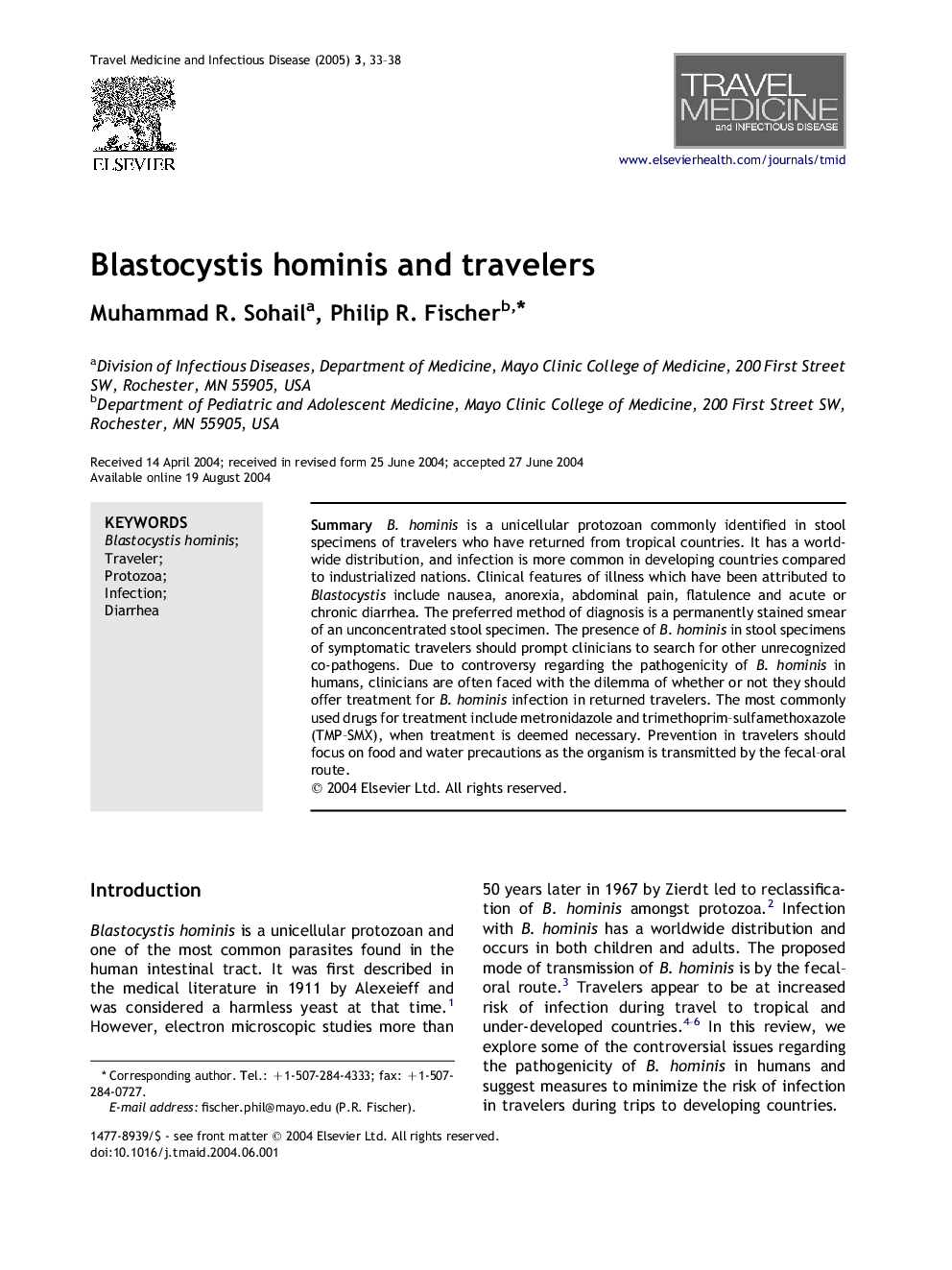| Article ID | Journal | Published Year | Pages | File Type |
|---|---|---|---|---|
| 9274110 | Travel Medicine and Infectious Disease | 2005 | 6 Pages |
Abstract
B. hominis is a unicellular protozoan commonly identified in stool specimens of travelers who have returned from tropical countries. It has a world-wide distribution, and infection is more common in developing countries compared to industrialized nations. Clinical features of illness which have been attributed to Blastocystis include nausea, anorexia, abdominal pain, flatulence and acute or chronic diarrhea. The preferred method of diagnosis is a permanently stained smear of an unconcentrated stool specimen. The presence of B. hominis in stool specimens of symptomatic travelers should prompt clinicians to search for other unrecognized co-pathogens. Due to controversy regarding the pathogenicity of B. hominis in humans, clinicians are often faced with the dilemma of whether or not they should offer treatment for B. hominis infection in returned travelers. The most commonly used drugs for treatment include metronidazole and trimethoprim-sulfamethoxazole (TMP-SMX), when treatment is deemed necessary. Prevention in travelers should focus on food and water precautions as the organism is transmitted by the fecal-oral route.
Related Topics
Life Sciences
Immunology and Microbiology
Applied Microbiology and Biotechnology
Authors
Muhammad R. Sohail, Philip R. Fischer,
